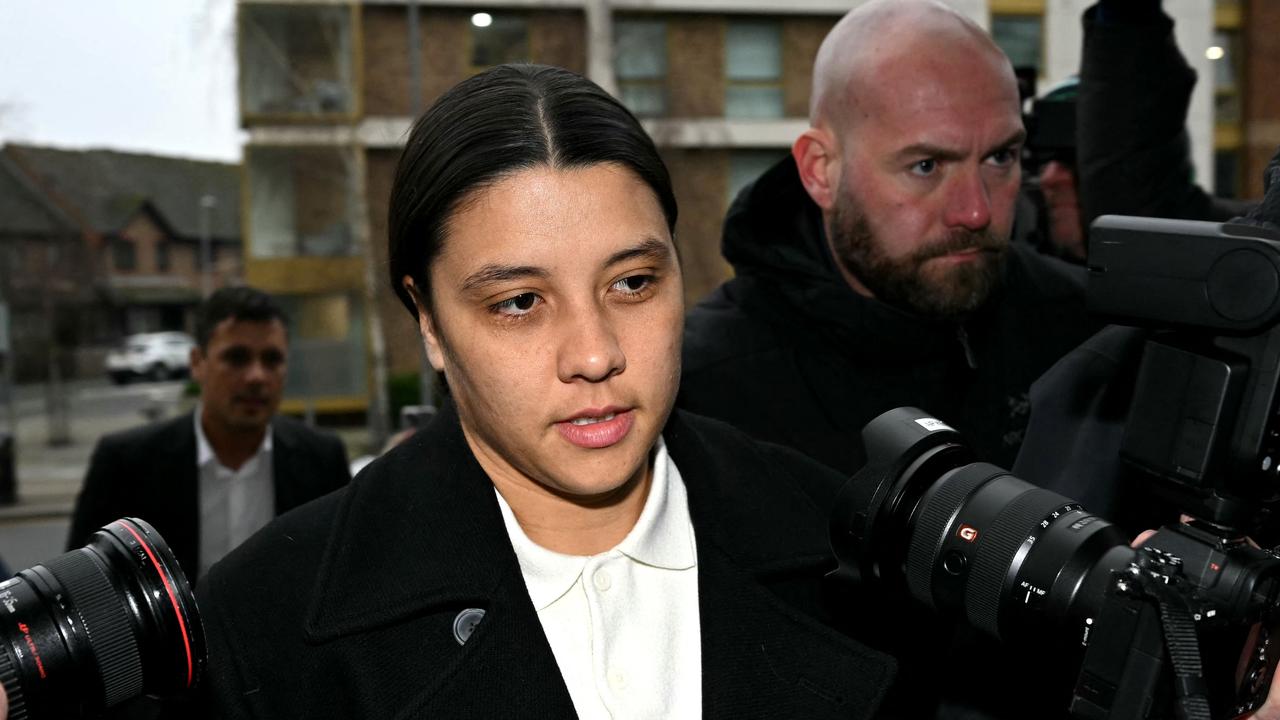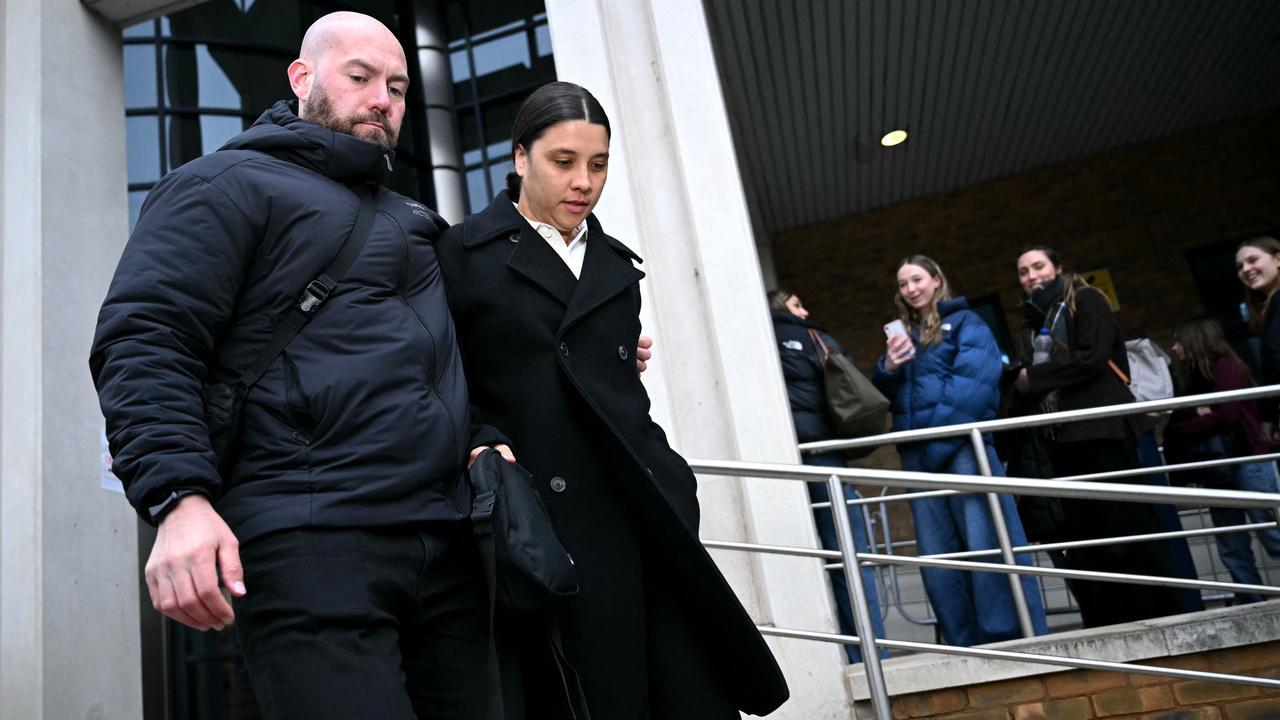Matt Cunningham weighs in on Sam Kerr court case
The fact Sam Kerr faced a criminal charge and a trial that lasted eight days and cost hundreds of thousands of dollars over a word that allegedly caused someone offence is a disgrace, writes Matt Cunningham.

The jury got it right this week when they found Sam Kerr not guilty of racially aggravated harassment against a police officer after a night out on the tiles in London.
Kerr probably wasn’t at her best on the night in question, but the fact she faced a criminal charge and a trial that lasted eight days and cost hundreds of thousands of dollars over a word that allegedly caused someone offence is a disgrace.
Kerr was charged after she called a police officer “f***ing stupid and white”.
It followed more than half an hour of conversation between the police, Kerr and her partner Kristie Mewis about the events in a taxi that had led the driver to take them to a Twickenham police station.
I’m not qualified to judge the fear Kerr and Mewis said they experienced when the cabbie detoured from his route after Kerr vomited in the cab.
But I believe other women, like Fox Sports News journalist Sam Squiers, when they say “every woman has felt like Sam Kerr’.
The broader concern in this case, and one that has relevance here in the Northern Territory, is the growing trend of governments criminalising or making unlawful words they think someone might find offensive.
It happened here two years ago with the former Labor government’s anti-discrimination legislation.

The new laws made it unlawful to “offend, insult, humiliate or harass” someone on the basis on a range of personal characteristics including race, gender, sexuality and religion.
I wonder how the architects of these laws felt about the Sam Kerr case? I suspect, like me, they believe Kerr has been the victim of an injustice.
How can a dark-skinned lesbian be accused of racially harassing a white police officer?
But this is exactly the problem with these laws.
Giving governments the power to control what people can and can’t say is a dangerous game. Who gets to decide what’s offensive and who can be offended?
In the Kerr case, the police officer involved claims Kerr’s comments offended him.
To quote the comedian Ricky Gervais, “so what, be offended”.
There’s no need for the law to get involved.
Because the definition of offence is always subjective.
He may believe he was offended.
I think he probably needs to harden up a bit if he wants to be a police officer, and the jury seemed to agree.
The Kerr case also highlights the problem of trying to identify who can and can’t claim offence.
When the NT Government first started consulting about its anti-discrimination legislation more than seven years ago, I attended a briefing at the Casuarina Library.
I asked the government bureaucrat whether Colin Wicking’s famous NT News Easter cartoons skewering Christians might fall foul of the proposed laws.
The government representative responded by saying there would likely be “levels of vulnerability” that applied to affected groups.

What I presumed she meant was that ridiculing Christians might be OK, but Muslims would be off-limits.
But the law can’t work like this.
You can’t offer protection to one religion, one gender or one race and exclude another.
In Kerr’s case, prosecutor Bill Emlyn Jones asked the jury to consider the situation if the police officer had been black and Kerr had called him “f***ing stupid and black”.
“In racially aggravated insulting behaviour, the law doesn’t discriminate between different races and the test is the same regardless of the ethnicity in question,” he said.
You don’t have to stretch the imagination too far to see how the application of this principle could lead to an avalanche of complaints to the Anti-Discrimination Commissioner if Northern Territory police officers woke up in a fragile mood on Monday morning.
Freedom of speech was once considered a cornerstone of democracy, fought for tooth-and-nail, particularly by those on the progressive side of politics who feared what the powerful might do if they could control what people could say.
The only exception to freedom of speech should be the incitement to violence.
This will mean people will say things we find offensive, insulting and hurtful.
But that’s a better outcome than giving people in positions of power - like a white, male police officer or an unelected NT Government official – the ability to impose legal sanctions on someone for expressing an opinion.
The CLP Government will undo Labor’s changes to the Anti-Discrimination Act later this year.
When it does so there will likely be howls of outrage from progressives.
They should be cheering instead.
More Coverage
Originally published as Matt Cunningham weighs in on Sam Kerr court case





